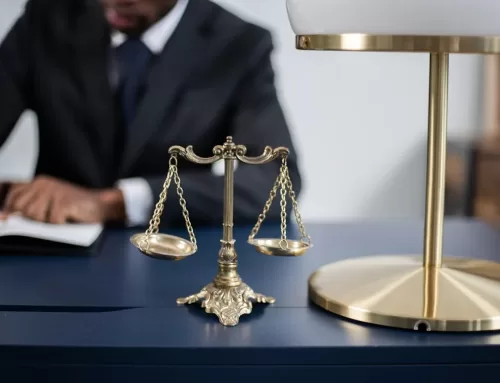As a driver in British Columbia, it is important to know your rights when it comes to searches of your car by police officers. Being pulled over can be a stressful experience, especially if you do not know your rights. Police can lawfully proceed with certain steps during a traffic stop, but police often do not know or intentionally go beyond their powers and breach the driver’s constitutional rights. If you believe your vehicle has been unlawfully searched, contact a criminal defence lawyer in BC as soon as you can.
In this blog, we will clear up some of the mystery surrounding vehicle searches as we cover if police officers can search your car in Canada, when they are allowed to do so, and what to do if you suspect you have been unlawfully searched.
When Can the Police Stop Your Car?
In Canada, the police are entitled to stop your car for a number of reasons. The reasons police pull people over can include:
- Traffic violations: If a police officer witnesses a traffic violation, such as speeding, running a red light, or driving erratically, they can stop your car to issue a ticket or warning.
- Public safety: Police can stop your car if they believe that you pose a danger to other drivers or pedestrians, such as if you are driving recklessly or if your car is in an unsafe condition.
- Suspicion of criminal activity: If a police officer has reason to suspect that you have committed a criminal offence or are in possession of items such as illegal drugs or weapons, they can stop your car to investigate.
- Random breathalyzer tests: Police can conduct random breathalyzer tests to check for sobriety, especially during periods when impaired driving is more likely to occur, such as holidays or weekends.
- Check driver’s license, registration, and insurance: Police can stop your car to check your driver’s license, registration, and insurance to ensure that you are driving legally.
When Can the Police Begin to Search Your Car?
During a routine traffic stop, the police are allowed to look into your car through the windows. While one officer speaks with you, another police officer might walk around your vehicle to see what they can see in plain view. That is the extent of police powers to search your vehicle for a routine traffic stop.
Without a search warrant, they cannot go further than that. This means they cannot ask you to open your glove compartment or check your trunk.
They cannot ask you to open any bags or containers, even if those containers are in plain view through the windows.
That being said, there are certain circumstances when police officers can search your car without a warrant. We describe these circumstances below.
You Give Them Permission
If the police have your consent, they can legally search your vehicle. Because of this, it is important to understand the difference between a police officer telling you they are going to search or asking if they can search.
It’s important to understand that giving permission to search your vehicle is NEVER mandatory, even if the police officers make it sound like it is, and that you have the right to refuse the search.
Police may ask for permission to search your vehicle during a traffic stop, a checkpoint or a random pull-over. When the police ask you for permission, you must be cautious and consider the potential consequences of the search before granting them access to the insides of your vehicle.
Keep in mind that if you do give permission for a search, and the police find something incriminating, they now have grounds to continue the search even if you tried to withdraw your consent. It is always best to be firm but respectful with the police. If they mention a search, tell them you are not consenting to any search. If they tell you they are proceeding anyways, do not attempt to stop them. Instead contact a criminal defence lawyer in BC!
You Have Been Arrested in or Near The Vehicle
The police can search your vehicle without a warrant if they have lawfully arrested you for a criminal offence, and they have reasonable grounds to believe that there may be further evidence connected to that crime in the vehicle.
You Are Detained by the Police and They Have Reason To Believe There is an Imminent Safety Concern
The police can detain an individual if they have a reasonable suspicion that an offence has been, is being, or is likely to be committed. This power is much more restricted compared to the power of police to search after an arrest.
While detaining an individual, police have powers to do a limited search for officers’ and public safety. This would not extend to an entire search of a vehicle for general evidence, but the police may have grounds to search a vehicle if they believe there is a loaded firearm in the vehicle or some other pressing safety concern.
Unlike the two other reasons above, this third ground has a significant amount of room for interpretation , making it difficult to determine if the search is lawful or unlawful. The gray area in these circumstances is even such that courts often don’t agree on whether certain searches are lawful. As a result, it is important to always speak to a lawyer when the police have searched your vehicle.
What To Do If You Suspect Your Vehicle is Being Unlawfully Searched
If you suspect that the police are unlawfully searching your vehicle, it’s important to remain calm and do not attempt to impede their search. If the police say they have a search warrant, request a copy of it.
If you can, take note of the date, time, and location of the search, as well as the officer’s name and badge number, as this information may be useful in the event that you need to file a complaint with the police station or challenge the search in court.
Most importantly, once you have told the police officers that you do not consent to any search, if they proceed anyways DO NOT COMMUNICATE WITH THEM FURTHER.
You will not be able to dissuade them from searching, and anything you say to these officers can potentially be used against you in court. For example, if you are arrested as you are entering a vehicle, but evidence of another crime is found in the truck of the vehicle, it may be impossible to establish that you had knowledge of the material in the truck. If you say to them, “You can’t search this vehicle, it’s not even mine. I just have my stuff in the truck” that may well be the evidence that convicts you.
If the police have violated your rights during a search, any evidence obtained during the search may be excluded from evidence in court. This is because the evidence would have been obtained in violation of your Charter rights. Your lawyer can help you contest the admissibility of the evidence and can argue that it should be excluded from the trial.
If you believe that your rights have been violated during a search, you should speak to a lawyer. Your lawyer can advise you on your legal options and can help you dispute the search.
Note that while you have the right to challenge an unlawful search in court, it’s generally not a good idea to resist or obstruct the police during a search. This can result in additional charges and can make it more difficult to argue your case.












